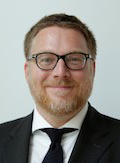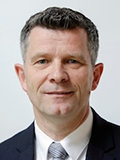Title
Sovereignty and Data Sharing
Abstract
In this paper, we characterize the notion of data sovereignty as a normative reference point for information and communication technology (ICT) governance. We explain why in our view, establishing data sovereignty means more than securing privacy, but also requires the availability of controllable means for sharing information with others. We argue that in the context of big data applications, dynamic consent mechanisms play a key role in steering information flows in accordance with the proposed normative reference point. We close by suggesting legal and governance aspects of implementing data sovereignty: explorations of data ownership notions, aiming at data literacy in education, encouraging transparency about data processing activities, and introducing representative data agents that channel data flows in accordance with individual preferences.
Keywords
Data agents, data ownership, data sharing, privacy, sovereignty
Authors
 Patrik Hummel Patrik Hummel
(Friedrich-Alexander-Universität Erlangen-Nürnberg, Germany)
Patrik Hummel, PhD, is a Researcher at the Chair of Systematic Theology II (Ethics) at Friedrich-Alexander-Universität Erlangen-Nürnberg. His research focuses on normative issues in digitization and automation, in particular governance challenges with clinical big-data applications, as well as theoretical and practical questions of personhood and personal identity
 Matthias Braun Matthias Braun
(Friedrich-Alexander-Universität Erlangen-Nürnberg, Germany)
Matthias Braun, Dr. theol., is an Assistant Professor at the Chair of Systematic Theology II (Ethics) at Friedrich-Alexander-Universität Erlangen-Nürnberg. His research is focused on theological, philosophical and socio-political concepts in dealing with emerging biotechnologies at the science-society interface (with special regard to synthetic biology, stem cell research and big-data medicine) on the one hand as well as concepts of recognition and vulnerability and its implications for ethics on the other hand.
 Steffen Augsberg (Justus-Liebig-Universität Gießen, Germany) Steffen Augsberg (Justus-Liebig-Universität Gießen, Germany)
Steffen Augsberg, Prof. Dr. iur., is Professor of Public Law at Justus Liebig University Giessen and a member of the German Ethics Council where he also headed the working group on “Big Data and health”. He has written widely on national constitutional and administrative law as well as the law of the European Union and legal theory and has served as an adviser to various state institutions.
 Peter Dabrock Peter Dabrock
(Friedrich-Alexander-Universität Erlangen-Nürnberg, Germany)
Peter Dabrock, Prof. Dr. theol., is Professor of Systematic Theology/Ethics at Friedrich-Alexander-Universität Erlangen-Nürnberg and Chair of the German Ethics Council. From 2011 until 2016 he was also member of the “European Group on Ethics in Science and New Technologies”. His research focuses on concrete ethics from a Protestant perspective, foundational theology and bioethics as theologically based social ethics (with special regard to healthcare, human genomics, synthetic biology, big data and biobanks)
|